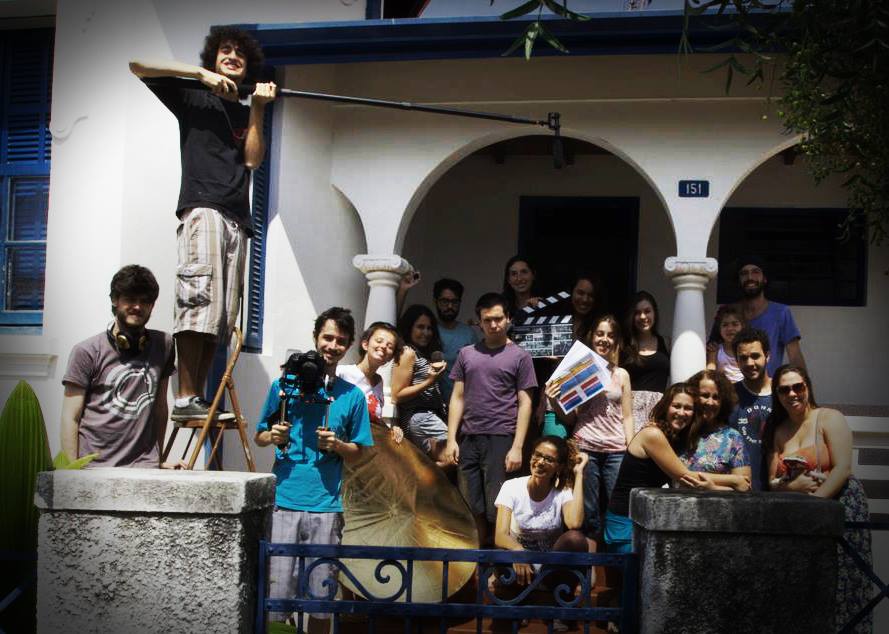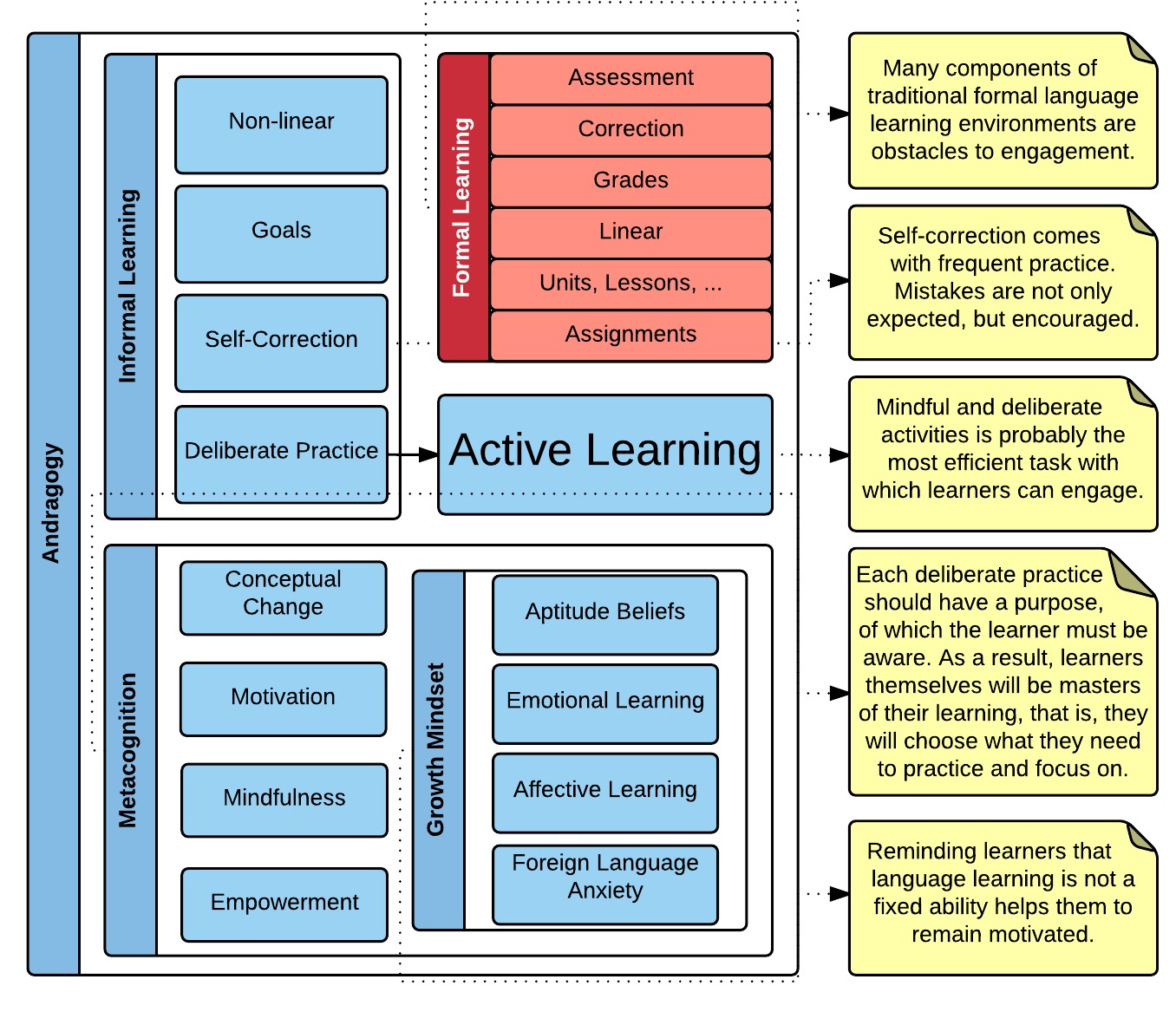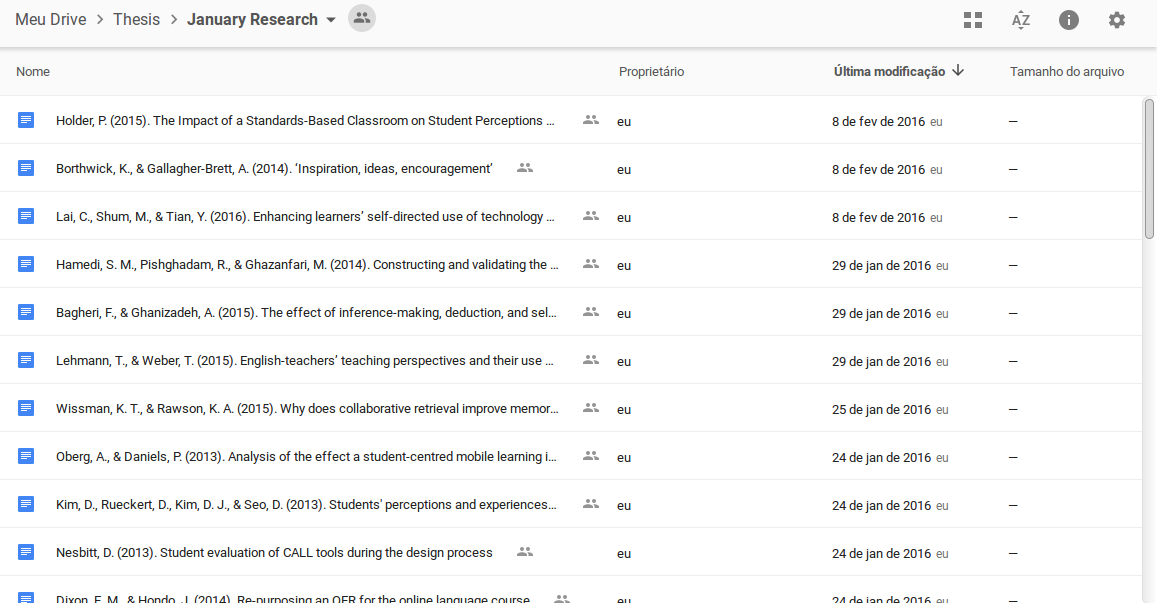Blog#8 Final Steps
Prompt: Describe your workflow. How did it evolve? Why is it (or is it not) effective? What has it taught you about yourself?
Last Tuesday, only a few thesis students showed up to our optional class meeting. It was a nice opportunity to revisit one of the most interesting and intriging discussions: what do you think of the structure of the thesis course and how would you improve it?
Since we’re reaching the end of the second semester of thesis, I believe this is, indeed, a good time to look back and reflect on what has or hasn’t worked for me. By doing that, I’ll be describing the different production stages I went through. I’m obviously writing a very personal narrative, which I hope that can be of some use to assess the overall structure of the thesis course.
My prior (lack of) experience with thesis projects
I’m probably one of the few students who have never worked on a thesis project before. In my Media Studies undergrad program, I worked on a few capstone-ish projects (in Film, Web, Photography, and Radio), but I honestly didn’t take any them too seriously.
In summary, since they were group projects, I chose to play secondary, easy roles in each of them. I did just enough to graduate! For exemple, I was part of the production team of an awesome short-film called À Meia Vista, which has even premiered at Cannes Festival. But my role was basically to hold up the shotgun mic, that is: no writing, no pitching, no decision-making… not so challenging!

Check me out!
Choosing my thesis project
As a consequence, at the beginning I was very scared to work completely on my own. It was even scarier to think that my thesis would shape my career path. I faced a lot of pressure, not coming from Camillia or anyone else, but from myself. I knew I wanted to work with language learning, but what exactly did I want to make?
If I look back, I can honestly say that since the first day in the DMDL program, I knew I wanted to try to emulate my teaching experience into an app. If I had stuck to that idea from the beginning of the thesis course, everything would’ve been so much easier! I’d have had more time to work on everything and, probably, my project would be in a better shape at this moment.
But… no! I felt like that wasn’t enough.
Not being understood by anyone
My impression was that, since I had to write a complete design document, I should do a huge amount of research and biuld up my initial project idea on the most solid foundations. So, almost in an unconscious way, I began to refer to many “scientific” terms to enrich my fairly simple idea for a project.

Why SO MANY key themes and areas of knowledge, Gui?
Suddenly, it became almost impossible to explain what I was doing. Even when my friends from Brazil asked me (in Portuguese, my native language) what I was working on, I could never make myself clear. My answers would always sound a little like this:
I’m working on a service, tool, or platform to help people learn languages. It is structured on modular archtecture, which means that all components are integrated into a core engine. These components can be added, removed or changed by any user. The idea is to create a crowdsourced database of contents and exercises that any self-motivated learner can use.
Also, those contents and exercises will be anchored in metacognitive principles, so they will be enriched and expanded by a community of users. Finally, the idea is to foster deliberate practice and growth mindset through informal, active learning.
… Basically, I was throwing in all the learning theories and terms that I found interesting. It was obviously too huge of a scope, too hard to explain, to research, to pitch. As a logical result, I ended up…
Not doing anything
Yes, that’s it. For a really long period in the first semester, I wasn’t able to do anything for my thesis project. The biggest reason, I believe, is that there was no clea “roadmap” to follow, that is: it wasn’t clear what I needed to work on, because my project idea was too complex and broad. Dealing with all that meant spending a lot of time to not accomplish much. It was stressful!
Besides that, there were no strict deadlines for the thesis deliverables. On the other hand, the two other courses I was taking at the moment (Narratives + Developing Assistive Tech) were pretty hard and demanding. Not being a very organized person, I was struggling to keep up with the assignments and deadlines for those courses, so I almost completely ignored my thesis deliverables.
In our weekly class meetings, I’d have great conversations with Nissa, and that was all I’d do for thesis.
If anyone asked, I’d say: I'm still struggling a little with my thesis idea. But the truth was I wasn’t struggling, because I simply wasn’t producing anything. I was just stressing out, more and more each day, without actually making any progress.
Minimum requirements
I just delivered my second milestone ONE day before the Spring semester started. In other words, I postponed as much as I could to write a paper of very questionable quality. In fact, the amount of hours I’ve spent writing it was nothing compared to how much I procrastinated (while stressing out, of course).
At that stage, I decided to work on my research. It seemed obvious to me that I lacked theory and references, and that was why I couldn’t make any progress. I began the second semester reading articles on a 3 hour/day basis. I printed them all at Bobst, using all my $50/semester printing balance. I’d read, highlight, and annotate them all. Can you believe that?

I did a pretty decent amount of useless research
Although professors and designers keep saying that iterating is the key, that early prototypes are the most useful thing a designer can do, that sketching out our ideas makes us better able to analyze them, I was just doing all the oposite: focusing on research, keeping my ideas to myself, generating a sea of complex theoretical ideas that could take me years to research/explain.
That, not surprisingly, led me to a…
Mild depression
For three weeks during the second semester, I wasn’t able to work on my thesis, even though my thesis is pretty much my only responsibility for the moment. It’s complex, actually.
On the one hand, I know I’m priviledged to have so much time to devote to my own project (as opposed to most of my brave, heroic peers, who also have full-time jobs, kids, or even both).
On the other hand, whenever a great opportunity like this happens, if I feel like I’m not making the most of it, I feel awful. It’s like if I’m constantly telling myself: Hey Gui, it's your obligation to do a better job... What's wrong with you?.
Reveal.js, git, Jekyll
Facing such lack of motivation, I reached out to my friends in IT for help. The conversations we had were pretty nice, but no collaboration came out of them. I was, then, even less motivated. To make things worse, I hurt my back by bringing home pieces of furniture I found on the street. For pretty much one entire week, I didn’t want to do anything.
That’s when I decided to access a link that Nick had sent me months before: a reveal.js course on Lynda.com. I had never taken any classes on Lynda, but I was really interested in reveal.js. That course was amazing and, by just dealing with codes, I began to feel very empowered and motivated again.
In the process of learning reveal.js, I learned to use git and github. Versioning control softwares were all I’ve always needed, but didn’t know existed. Github brought me to Github Pages and Jekyll (I described this on my previous post), and suddently, I was excited again. Yey!
Finally asking for feedback
Another lesson that I should’ve had learned a long ago from every design book ever written is that getting feedback is useful and exciting. Up to the middle of this semester, I had never gotten any actual feedback from anyone, since, as mentioned earlier, my project idea was too complex and hard to explain.
But as I decided to show my new prototypes and website, things have gotten so much better! Suddenly, I began to receive on a regular basis some compliments and suggestions on everything I did. This has changed the whole picture.
If, before, I was doing a thousand hours of reading/research and keeping all of that to myself, now I share with everyone each new little thing I’ve worked on. I found out that everyone is pretty amazing at providing encouraging, constructive feedback.
Getting ready for the final week
Well, of course this is the last week to work on our thesis papers, which means I’m writing a blog post as a way to procrastinate. I’m also pretty scared that my paper will turn out bad, or that I won’t have time to ask one of my native English speaker friends to proofread it, or that my prototype will basically suck.
Getting sick last week didn’t help. The cold medicines hurt my stomach, which made me stop drinking coffee for a while, which made me try (once again) to quit drinking coffee at all. At this very moment, I feel tired and in a very bad mood. Also, dealing with headaches hasn’t been easy.

All I’m thinking about
On the other hand, I feel pretty confident with the progress I’ve made over the past month. Besides that, it has become a real pleasure to work on my thesis. Rather than a ton of pressure, I feel some pride of what I’ve accomplished, especially in terms of what the thesis process has taught me.
Finally, it’s also a huge pleasure to count on the help of my wife, committee member, and official graphic designer, Amanda. She has been very patient with me as I went through all these stages, from the mild depression to the coffee deprivation. Working with her is always exciting! She has definitely become part of my most efficient workflow.